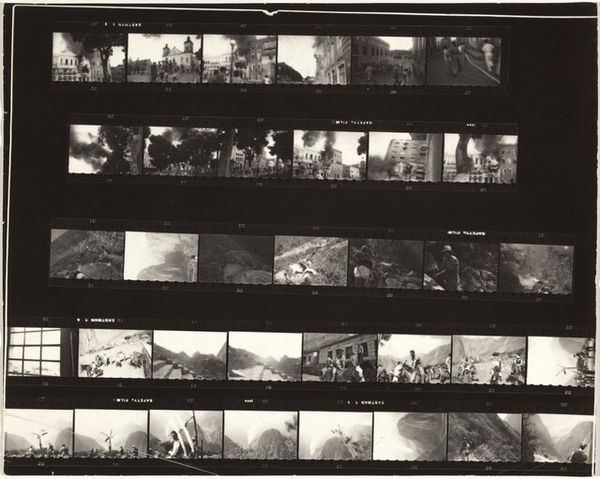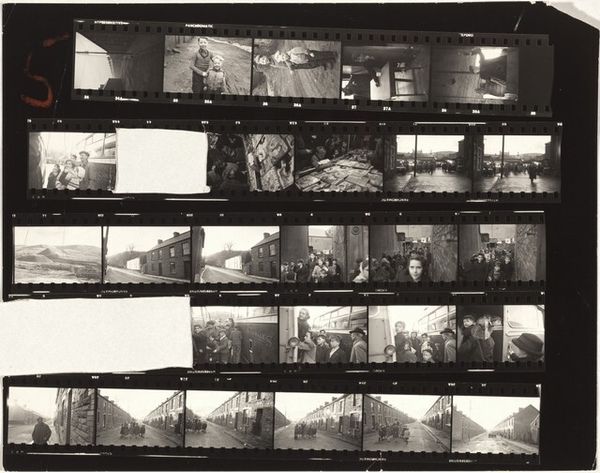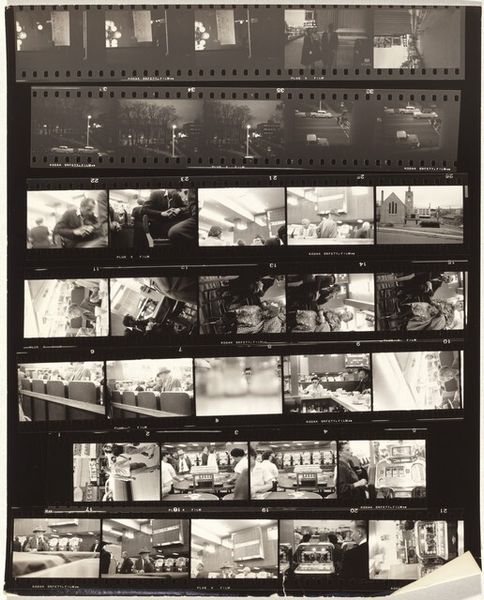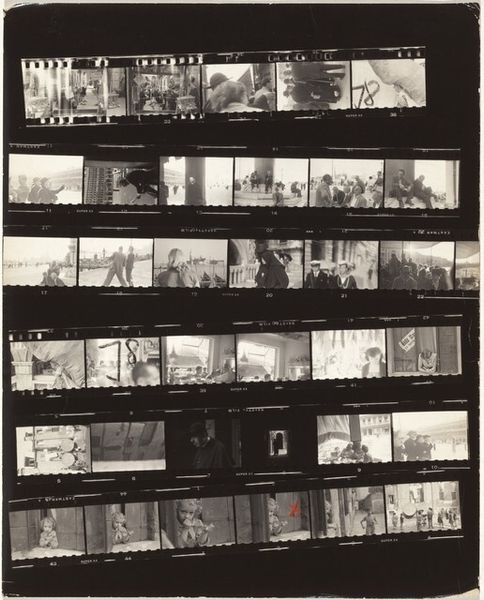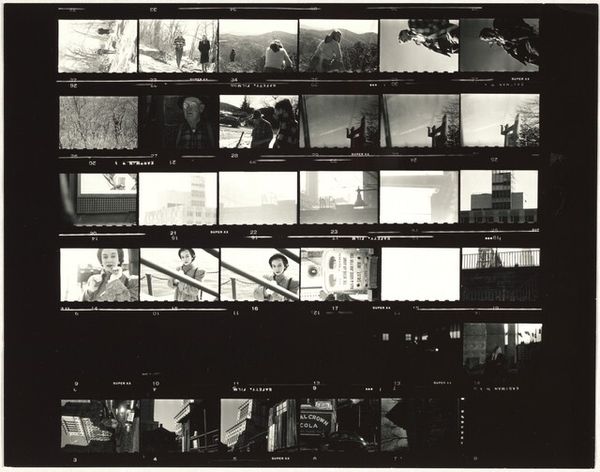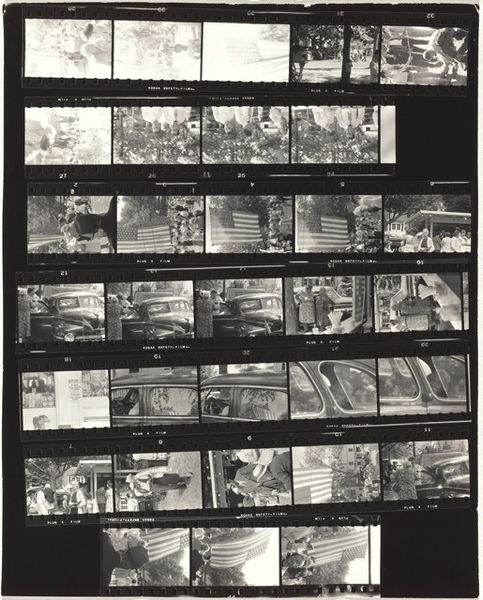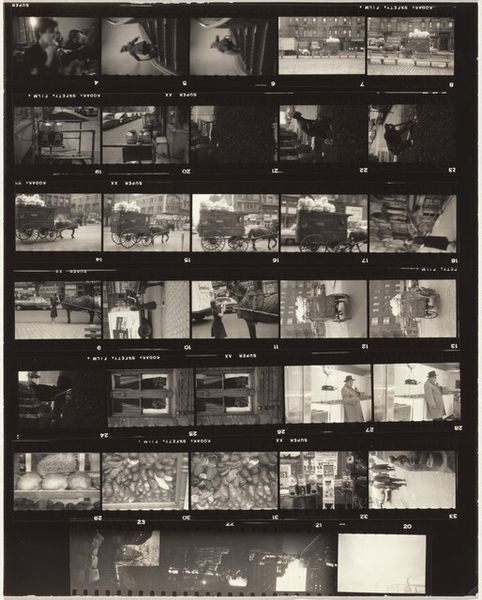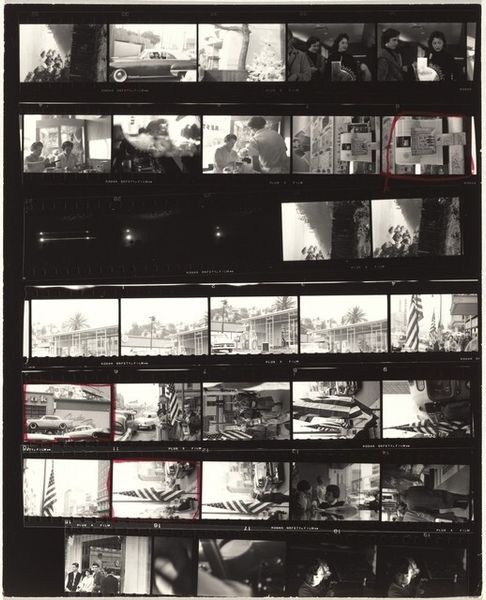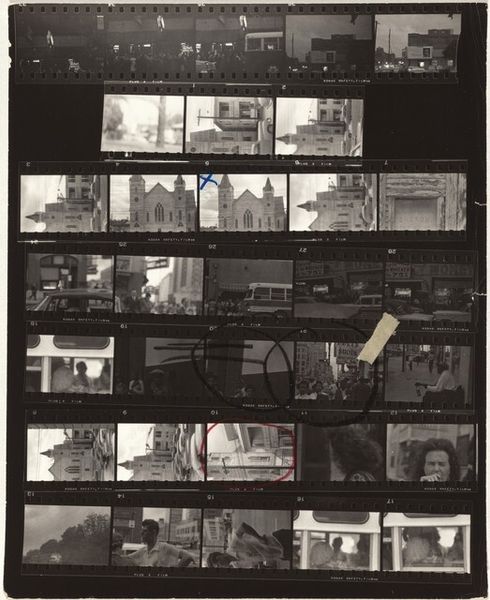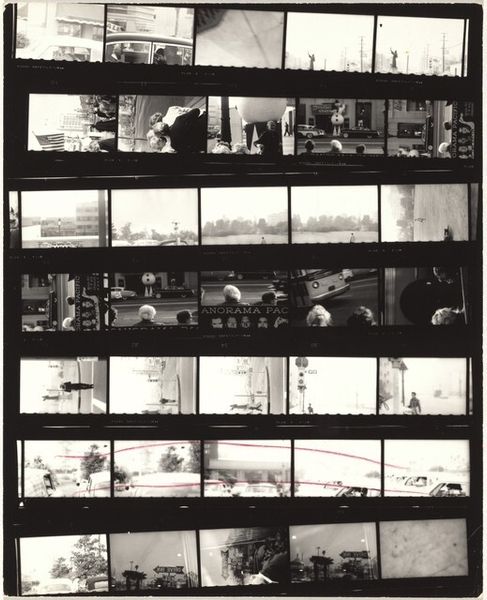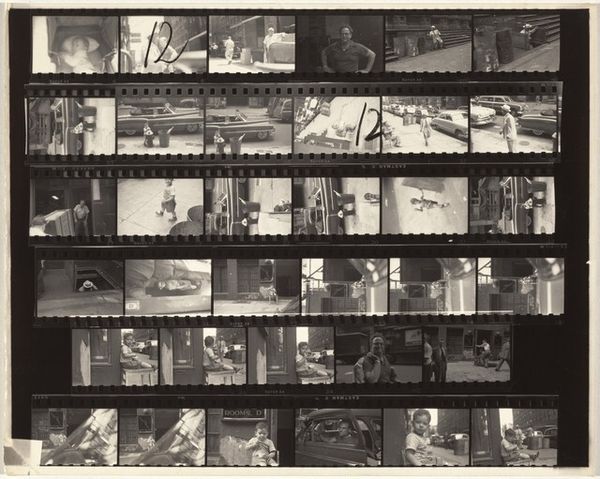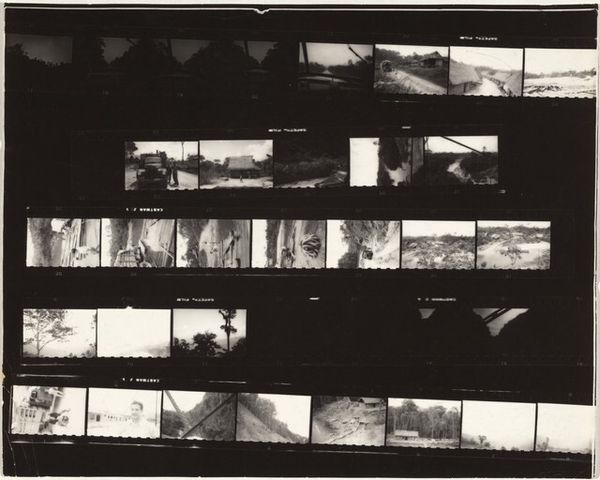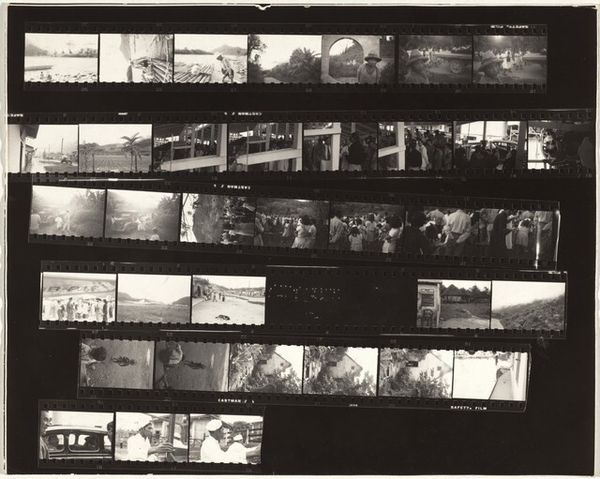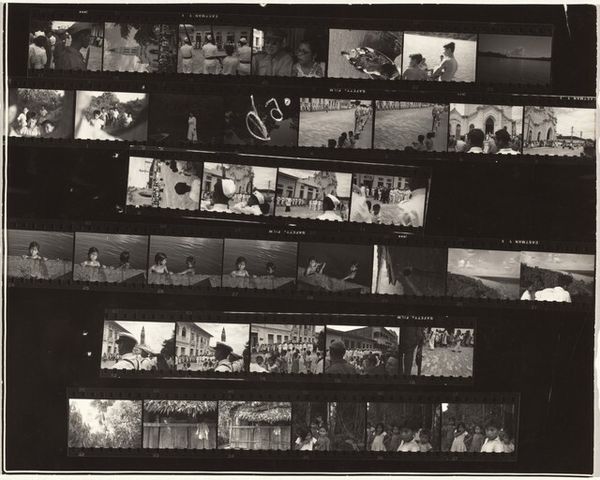
contact-print, photography
#
landscape
#
contact-print
#
street-photography
#
photography
#
cityscape
#
modernism
Dimensions: overall: 20.3 x 25.2 cm (8 x 9 15/16 in.)
Copyright: National Gallery of Art: CC0 1.0
Editor: Here we have Robert Frank’s contact sheet, "Early New York City no number," made in 1949. It’s a photographic work offering several glimpses of postwar New York. I'm immediately struck by the contrast between the external shots of skyscrapers and bridges with the more intimate interior shots of people and their daily lives. What social commentary do you see emerging from this work? Curator: That's a keen observation. Frank's contact sheet, viewed through an activist lens, speaks volumes about post-war urban experience. It’s not just a visual record, it's a critical examination of a society undergoing rapid transformation. How do you think Frank uses composition to communicate the nuances of urban alienation? Editor: I suppose the juxtaposition of seemingly disconnected images makes me feel almost disoriented. The candid shots appear almost intrusive. Curator: Precisely. Frank challenges the notion of the American Dream by exposing the fragmentation of urban life. Consider also how his style broke away from conventional photographic norms, almost a defiance in his technique. Do you see how this approach might align with broader movements questioning authority and social structures? Editor: Now that you mention it, it almost seems like he’s not trying to beautify New York at all. The reality is so much more complicated than the postcards would have you believe. It makes me wonder what his intentions were and what narratives he hoped to unravel through his contact sheets. Curator: Exactly! Frank captured a raw, unfiltered view, challenging viewers to confront uncomfortable realities around them. Thinking about it further, this body of work is not just a window into the past, it's a mirror reflecting the ongoing struggle for equity and visibility. Editor: I see. I definitely appreciate it more now knowing there's that social justice perspective layered into the photography. Thank you for shedding light on it!
Comments
No comments
Be the first to comment and join the conversation on the ultimate creative platform.
